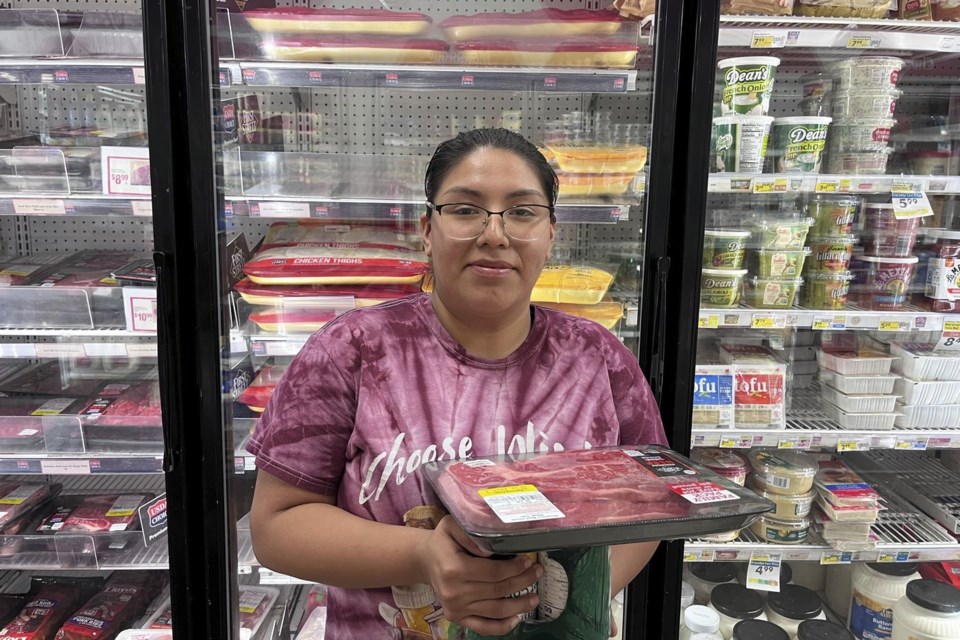SACRAMENTO, Calif. (AP) — California wants to help end the everyday household debate over whether the food in the fridge is still good to eat.
Food labels that say “sell by” or “best before” are misleading because they have no universal meaning under current laws. Now California wants to crack down on such practices, bidding to help consumers stop playing guessing games with produce and other items in their fridges.
The state is the first to ban food labels such as “sell by” or “best before” under a law signed by Gov. Gavin Newsom. The legislation signed by Newsom over the weekend aims at reducing both food waste and the state's climate-warming emissions.
There are more than 50 different date labels on packaged food sold in stores, but the information is largely unregulated and does not relate to food safety. “Sell by” dates, for example, often act as a guide for stores to pull products from the shelf and not as an indicator of whether the product is still safe to consume.
With no federal regulations dictating what information these labels should include, the stamps have led to consumer confusion — and nearly 20% of the nation's food waste, according to the Food and Drug Administration. In California, that's about 6 million tons of unexpired food that's tossed in the trash each year.
“Having to wonder whether our food is still good is an issue that we all have struggled with," said Democratic Assemblymember Jacqui Irwin, author of the bill.
The new law "is a monumental step to keep money in the pockets of consumers while helping the environment and the planet,” she added in her statement.
The law is set to take effect in July 2026, establishing a new standard for food labeling in California. It will require the use of “Best if Used By” label to signal peak quality and “Use By” label for product safety, an approach recommended by federal agencies. The law provides exemption for eggs, beer and other malt beverages.
The California law comes as similar efforts around the country remain halted at the federal level. State lawmakers and advocates said they also spent the last decade trying to pass legislation to reduce food labeling confusion and cut down on food waste. A similar measure died before reaching the governor's desk in 2016. Then-Gov. Jerry Brown also signed a bill in 2017 to establish voluntary uniform-labeling protocol but few companies ended up following the honor system.
“Widespread implementation that was basically committed to by industry wasn’t happening,” said Erica Parker with Californians Against Waste, who sponsored the bill. “Food waste rates are not decreasing, they’re increasing.”
Supporters hope the legislation could pave the way for new food labeling standards in the U.S., though it's not immediately clear if the new law and the massive California market will push companies to standardize food labeling for all products in the country.
“California has such a large market share that we do think this will push manufacturers,” said Nina Sevilla with Natural Resources Defense Council, who also sponsored the bill. “The hope is that California serves as a model either for other states or ultimately to push action at the federal level.”
Shopper Jasmine Acosta, 23, said she believes most people don’t understand the current language used on food labels.
“It’s confusing to most consumers,” Acosta told The Associated Press as she shopped Tuesday at a Smart & Final store in Los Angeles.
She used to work at a small grocery store, so she’s developed the habit of examining her meat purchases for smell or discoloration before using the food. A sell-by date helps the grocer adhere to a “first in first out” method for its products and get ready for the next shipment arrival, but doesn’t mean the food has gone bad, according to Acosta.
While shopping Tuesday, she picked up a pack of meat that said “use or freeze by” -- phrasing that she believes is relatively clear compared to other language but could still be confusing.
“It would obviously help everybody try to be on the same spectrum and make sure everything’s able to be used by the consumers, or if not it’s just a waste of money,” Acosta said.
____
Associated Press writer Jaimie Ding contributed to this report from Los Angeles.
Trân Nguyễn, The Associated Press



